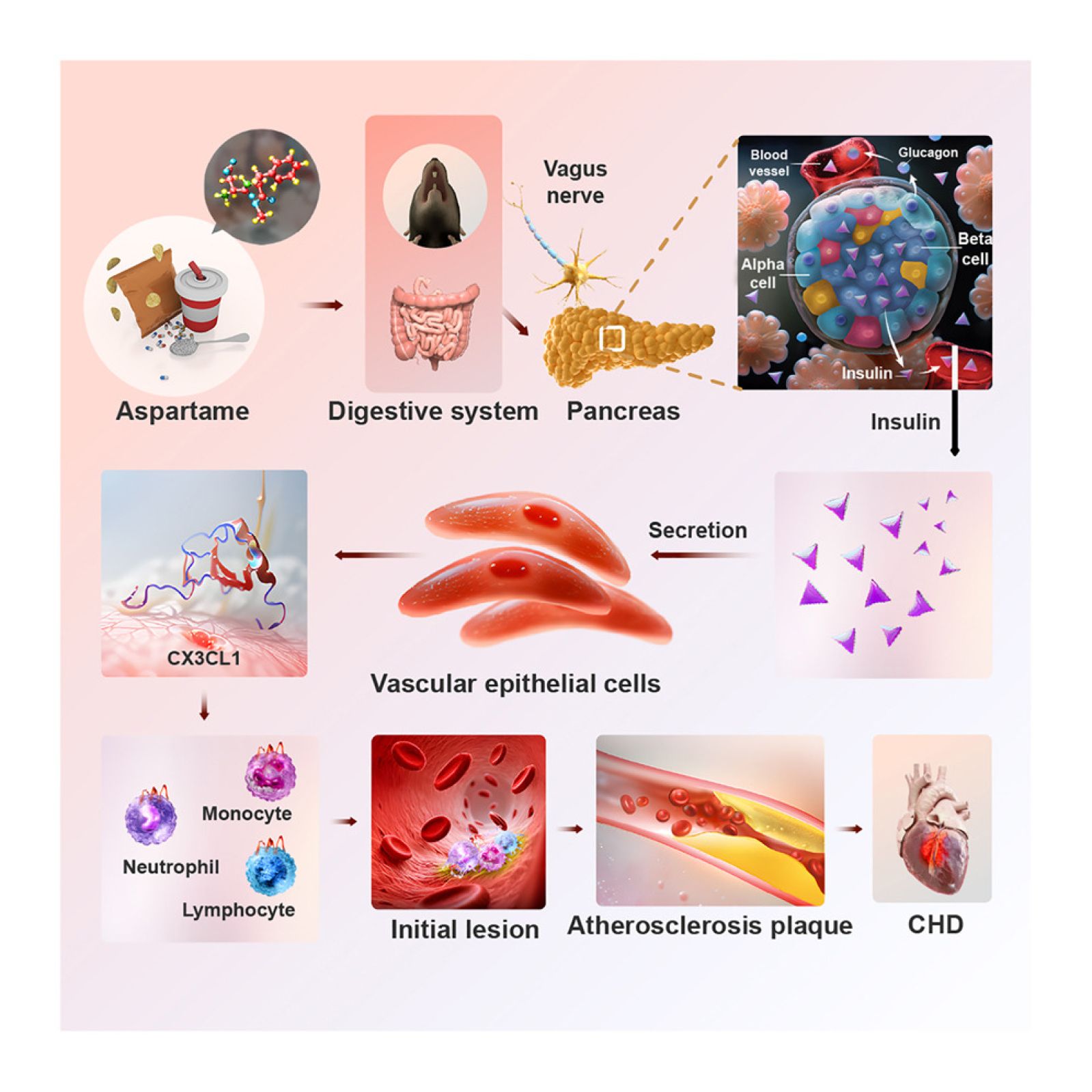Aspartame: a poison for your heart 🍬
Follow us on Google News (click on ☆)

Illustration image from Unsplash
Researchers have discovered that aspartame causes an increase in insulin levels, which contributes to the accumulation of fatty plaque in the arteries. This buildup can lead to inflammation and increase the risk of serious cardiovascular diseases, such as heart attacks and strokes.
The study, published in Cell Metabolism, was conducted on mice fed aspartame for 12 weeks. The results showed a significant increase in arterial plaque and inflammation levels in these mice compared to those that did not consume the sweetener.
The researchers also identified an immune molecule, CX3CL1, which plays a key role in this process. This molecule attracts immune cells to the walls of blood vessels, thereby promoting inflammation and plaque formation.
By blocking the receptors of CX3CL1, the researchers were able to prevent plaque buildup in mice fed aspartame. This discovery opens the door to new therapeutic strategies to prevent the harmful effects of artificial sweeteners on cardiovascular health.

From aspartame consumption to heart deterioration
The next steps in this research include verifying these results in humans and exploring the use of CX3CL1 as a therapeutic target for other chronic diseases involving blood vessel inflammation.
This study highlights the importance of better understanding the long-term impacts of artificial sweeteners on health, given their omnipresence in our diet.
How does aspartame affect cardiovascular health?
Aspartame, an artificial sweetener, causes an increase in insulin levels in the body. This increase in insulin stimulates the formation of fatty plaques in the arteries, a process known as atherosclerosis.
Atherosclerosis is a condition where arteries become clogged with plaque, reducing blood flow and increasing the risk of cardiovascular diseases. Aspartame, by increasing insulin, accelerates this process.
Moreover, aspartame activates an immune molecule called CX3CL1, which attracts immune cells to the walls of blood vessels. These immune cells contribute to inflammation, thereby worsening atherosclerosis.
Thus, aspartame affects cardiovascular health by increasing insulin and activating inflammatory processes in the arteries.